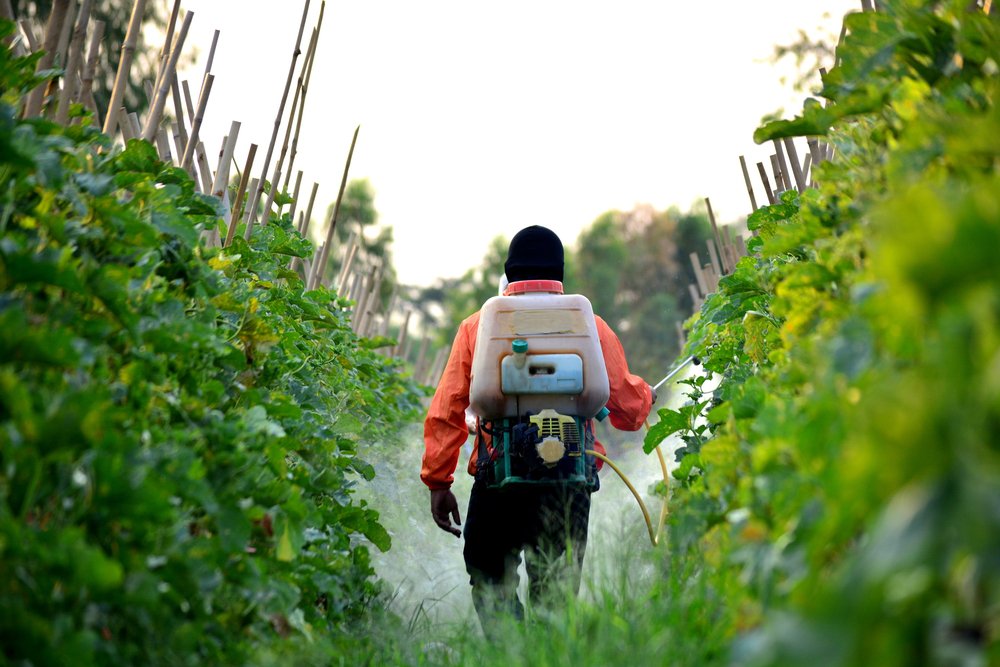-
Tips for becoming a good boxer - November 6, 2020
-
7 expert tips for making your hens night a memorable one - November 6, 2020
-
5 reasons to host your Christmas party on a cruise boat - November 6, 2020
-
What to do when you’re charged with a crime - November 6, 2020
-
Should you get one or multiple dogs? Here’s all you need to know - November 3, 2020
-
A Guide: How to Build Your Very Own Magic Mirror - February 14, 2019
-
Our Top Inspirational Baseball Stars - November 24, 2018
-
Five Tech Tools That Will Help You Turn Your Blog into a Business - November 24, 2018
-
How to Indulge on Vacation without Expanding Your Waist - November 9, 2018
-
5 Strategies for Businesses to Appeal to Today’s Increasingly Mobile-Crazed Customers - November 9, 2018
Monsanto’s Roundup chemical unlikely to cause cancer in humans
By combining evidences of chemical exposure, lack of glyphosate’s cancer-causing potential in rodents at human-relevant amounts, and absence of toxicity via oral route in humans, the report concluded that the chemical is unlikely to pose cancer risks to humans who have been exposed via dietary means.
Advertisement
The EPA’s Cancer Assessment Review Committee (CARC) came to the conclusion following an in-depth analysis of several dozen published and unpublished scientific studies of the weed killer.
The statement went on to claim that the potential cancer hazards highlighted by WHO’s International Agency for Research and Cancer report did not include an estimate of the level of carcinogenic risk to the exposed population, which this new report does.
Glyphosate is a key component of agribusiness giant Monsanto’s popular weed-killer “Roundup”, and is used to eliminate unwanted plants growing among so-called Roundup Ready crops – plants genetically modified to resist the herbicide. Researchers at the agency however sought to calm outrage by clarifying that the focus of the new report was not on overall risk, just that associated with eating. These outcomes were questioned, however, after the large cohort high-quality study discovered no evidence of a link.
“The Meeting concluded that glyphosate is not carcinogenic in rats but could not exclude the possibility that it is carcinogenic in mice at very high doses”, representatives of the two organizations said in a report after a meeting held in Geneva from May 9-13.
Ahead of a the final vote on the re-authorisation of glyphosate – Europe’s most commonly used herbicide – the NFU has called for “common sense to prevail”.
Glyphosate supplier Monsanto celebrated the report’s finding but slammed IARC’s classification as “inappropriate and inconsistent with the science on glyphosate“.
In the meantime, there are reports that the European Union pesticides committee will conduct a meeting on Wednesday in order to decide the glyphosate’s fate i.e. whether to extend its license or not. One of the lines on Monsanto’s website states that “even at 100 times the exposure that occurs during normal labeled use glyphosate is not a human health risk”.
“Those are the people who are at greater risk for things that do cause disease, so pesticide applicators would have higher exposure, than the general public”, said Anneclaire De Roos, an epidemiologist at Drexel University.
Advertisement
The FAO’s Panel of Experts on Pesticide Residues in Food and the Environment and the WHO’s Core Assessment Group on Pesticide Residues (JMPR) evaluated the safety of glyphosate and other chemicals at the World Health Organization headquarters, in Switzerland last week.





























